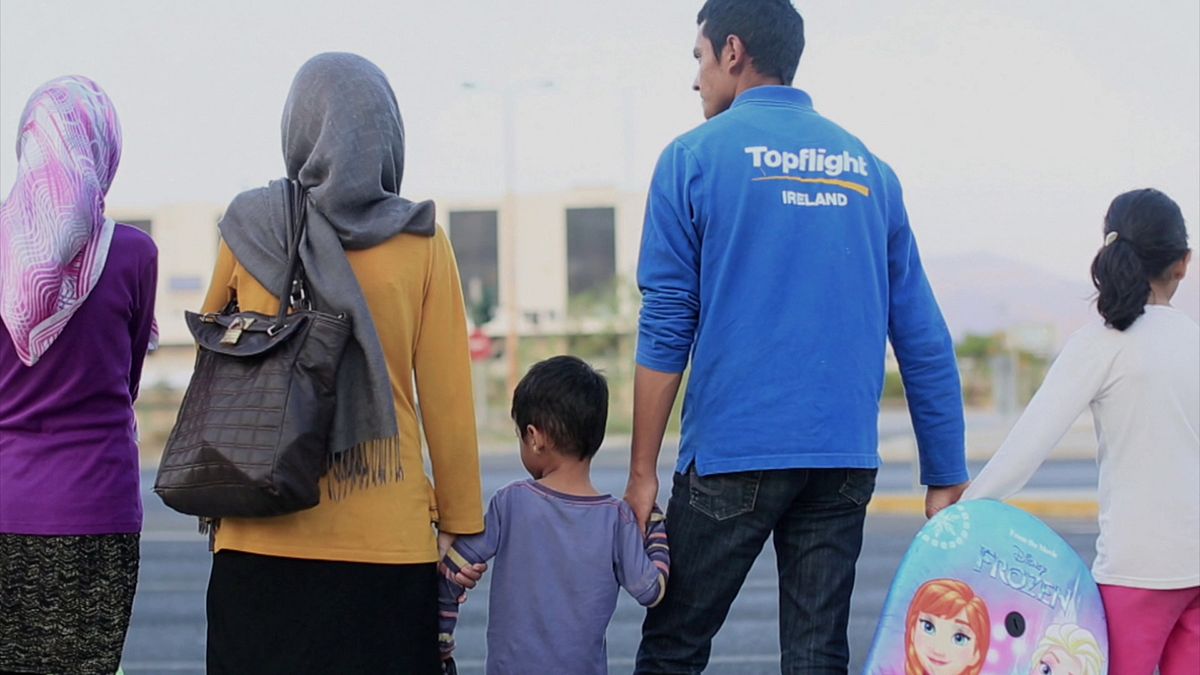What was once a bustling airport outside Athens is now a makeshift camps for refugees with nowhere to go.
It was once a bustling airport outside Athens, filled with vacationers eyeing departure boards. Today it’s a makeshift camp for thousands of refugees with nowhere to go.
Our reporters Preethi Nallu and Iason Athanasiadis went to Elliniko, a former international airport with a neighbouring sports complex built for the 2004 Olympics. The abandoned buildings are now home to some 4,000 Afghan asylum seekers.
An Afghan child brushing his teeth at the old Elliniko airport in Athens, where refugees now camp. #RefugeeCrisispic.twitter.com/CyncDmY7Mt
— Nicolas Niarchos (@PerneInAGyre) August 23, 2016
On one recent evening, Afghans held a vigil there to mourn the loss of a fellow refugee. The young man was repatriated to his hometown in Afghanistan – only to be killed by local Taliban fighters.
Despite Afghanistan’s “post-conflict” status, bloody unrest continues to grip the country, and Afghans remain among the top three nationalities seeking asylum in Europe.
But under European asylum rules, they have few options other than voluntary repatriation. Those who arrived after the EU’s controversial migration deal with Ankara are set to be returned to Turkey.
Origin countries of asylum applicants in EU 2015https://t.co/r0oigooLKQpic.twitter.com/EJOUQV8WYP
— Andrew Geddes (@profgeddes) March 4, 2016
“I’m scared”
Taza, a widowed mother of six, first fled from Afghanistan to Iran.
“The Taliban were going from house to house, taking women and girls and acting dishonourably towards them,” she recounts modestly.
After nearly a decade in Iran, she and her family came to Greece in April, hoping for a brighter future in Europe.
However, because of various bureaucratic hurdles, Taza has not been able to apply for asylum. Penniless and with several mouths to feed, she has decided to repatriate to Afghanistan, for lack of better options. But the move terrifies her.
“You can’t live in Afghanistan, there’s war, all the time. The kids are scared, I’m scared, I have no legal guardian or anyone to depend on for a living,” she says.
Taza’s family has been told that the voluntary return program set up by the International Organization for Migration would take them back to Kabul. But they worry about returning to their hometown in the northern Baghlan Province, where the Taliban rebellion is raging.
Taza’s oldest son fears he could be the target of a vendetta if he goes back there. “My heart’s pounding over whether I’ll make it back there, and whether I’ll get killed,” he says.
The questions haunting many asylum seekers in Greece are simple, yet impossible to answer. Will the borders open? Will they be granted asylum? How can they return home after being away for so long, with no support?
The threat of deportation
Yusuf, also from Afghanistan, has spent the past 13 years trying to make a life for himself in Athens. But his claim for asylum has been systematically rejected. He doesn’t understand why: he has learned to speak Greek, has worked in the country for years, and made Greek friends.
Yusuf risks deportation. A scenario he did not imagine when he left Afghanistan after NATO forces came in 2003.
At least 110,000 people have been killed in the Afghanistan war since 2001, according to a recent study by Brown University.
“I very much would like to have a family because I’m 42 years old. The years are passing and I don’t want to miss out on that opportunity. But first of all I want to have papers, to be legal,” says Yusuf.
He awaits a final hearing on his asylum application, and fears he might be forced back to a home that no longer exists.
“There’s no way I can go back to Afghanistan. Why? Because it’s utterly lawless. Rules only exist for those people inside the parliament, who are in charge, who are protected by weapons and armored cars. The rest of us are not able to live there in safety.”
